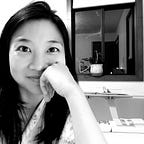Author Note
I am no hero.
I don’t break down doors and run into the fires of my patients’ lives.
I have made some sacrifices. In twelve years of training to be a doctor, I missed weddings, baby showers, and funerals, experienced my own health cyclically decline and recover, lost sleep in quantities of years of my life I’ll never recover, grieved the loss of patients, mentors, and peers, witnessed the deterioration of my relationships, and worked through my own traumas as a women’s health care provider in a world that insists on terrorizing women [1]. As an obstetrician-gynecologist, I am finding my voice in the chaotic landscape of women’s health, learning about pain, suffering, healing, and survival from women much stronger, much more tried than myself. I am privileged to see the battlefield without myself being in battle. I know what heroes look like. I have met many and, despite some sacrifice, I am not one.
I give this disclaimer for two reasons:
First, certain assumptions are made when I reveal I work with women with mental illness, substance use disorders, victims of abuse, and incarceration. I confess that I deliver care to these women not because I think I can save them, or even know what that means, but because I can provide basic services in exchange for what I consider a much greater payment. What I receive in exchange for my input as a physician is affirmation that people are complex, resilient, and beautiful, that our stories of pain, birth, and life are constantly changing and that, importantly, we are the writers of these stories. At the heart of my commitment to patient care is a selfish desire to understand what makes us human, what comprises truth. I am a Buddhist. I saw God/Nirvana for the first time at a maternity hospital in Ecuador, and am now looking for it everywhere. Any assumption that I am altruistic is incorrect.
The second reason for this note is so you are aware, as a reader, that I am still learning. I noticed many writers will share their expertise from places of authority, which is a different type of messaging altogether. You will not find advice columns here. I won’t tell you how to live your life any more than I tell my patients to live theirs. I am still myself trying to figure it out, and writing is a means by which I do so. I may write pieces sharing my perspective as an obstetrician-gynecologist, because my voice as an evidence-based practitioner lives in contrast to seemingly endless prejudices and myths about the female experience. My writing is simply expression, and my opinions are explicitly and exclusively my own.
Thank you for giving me the space to share [2].
- I use the terms “woman” and “women” in an overly simplistic way, acknowledging the terms refer to people who identify as women regardless of sex at birth. While my practice is rooted in the female reproductive tract, my patients may not identify as women. I continue to use the terms here for the sake of continuity of what we colloquially understand as “women’s health” and healthcare.
- For those who (for a brief moment) caught a preview into my writing about incarceration, and are now wondering when the prison articles will be written, the answer is: not now. Attempting to understand issues of trauma, isolation, and reproductive health within the carceral system has been as emotionally and intellectually challenging as one might imagine. The work itself is also incredibly rewarding, and I have no words to express how much I admire those who facilitate care to people in these circumstances. I am not mature enough as a writer to describe the horrors of women’s experiences behind bars while honoring the complexity of the safety net which thankfully exists for them. Describing their experiences without completely understanding the context of incarceration would be to tell their stories incompletely. Until I am confident I can do justice to their stories, the articles won’t be published.
